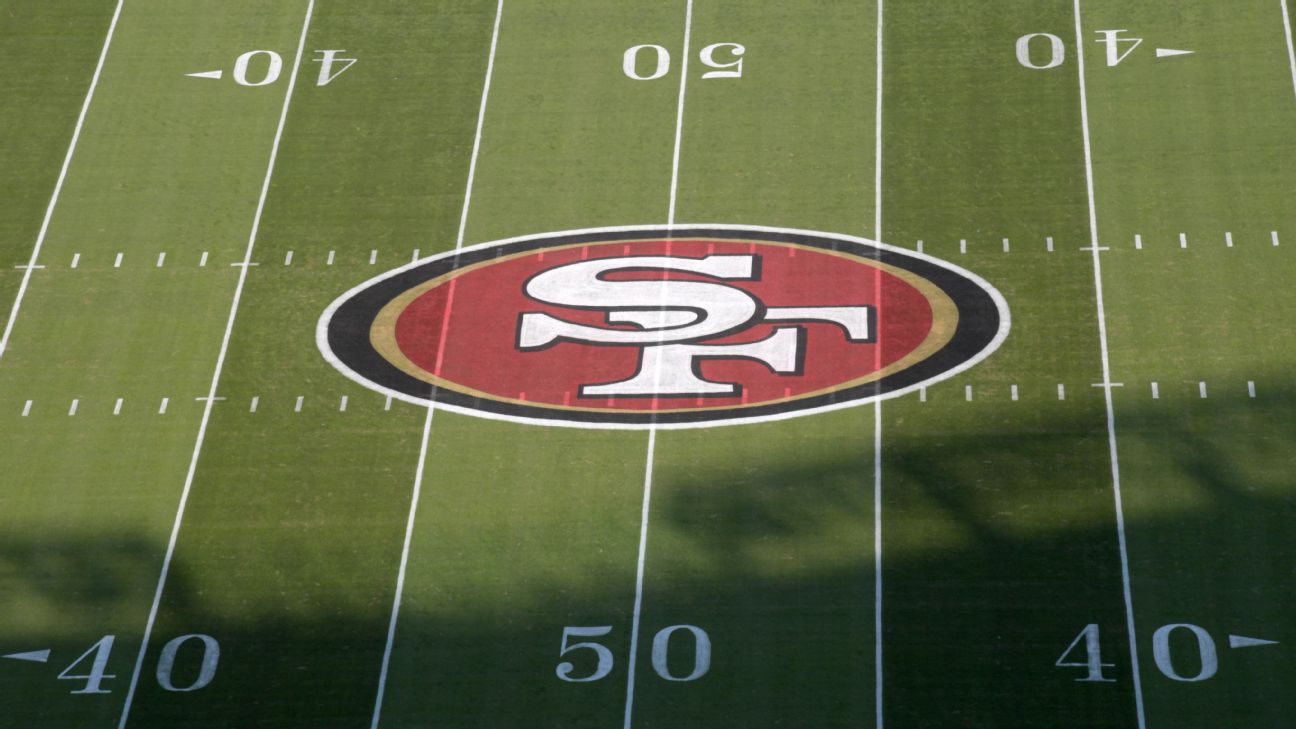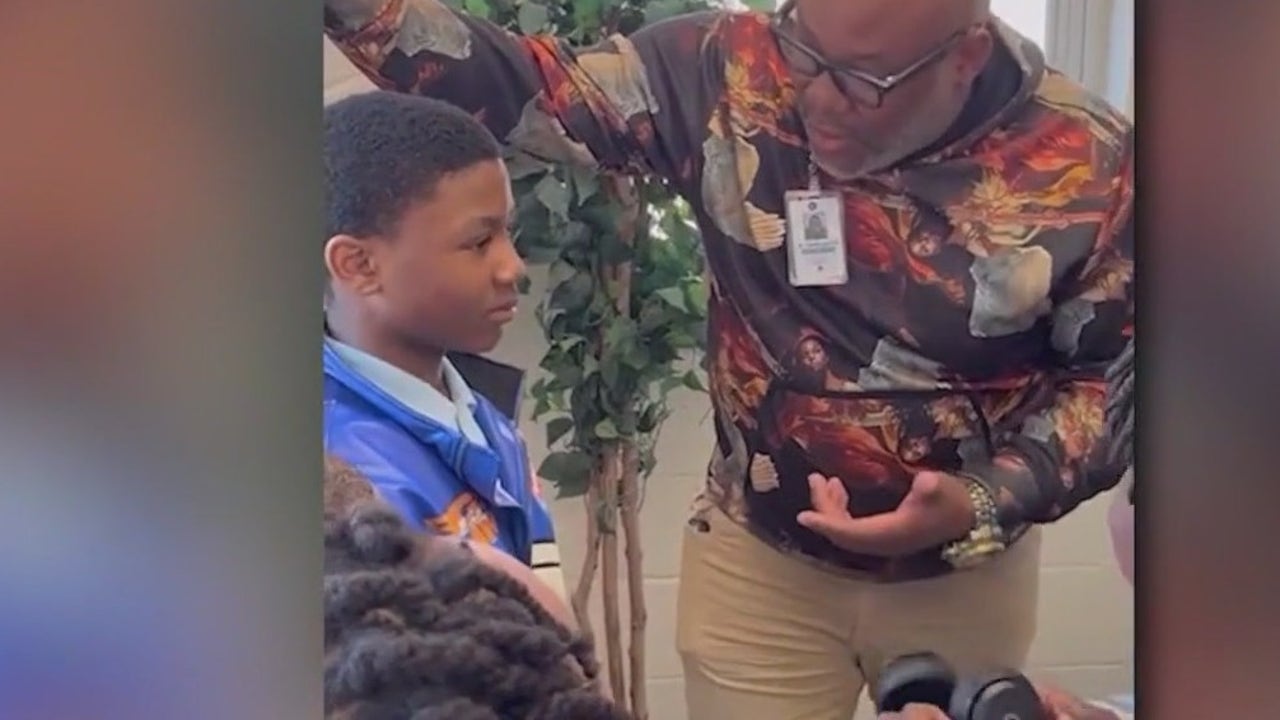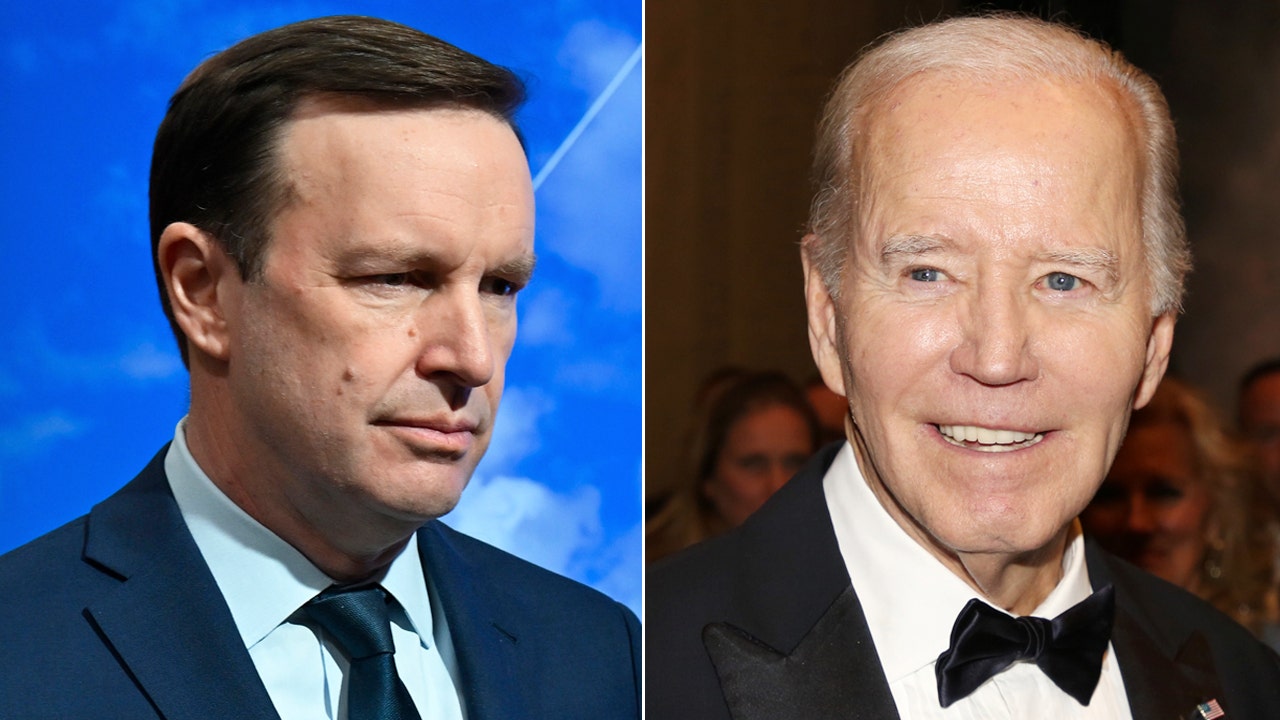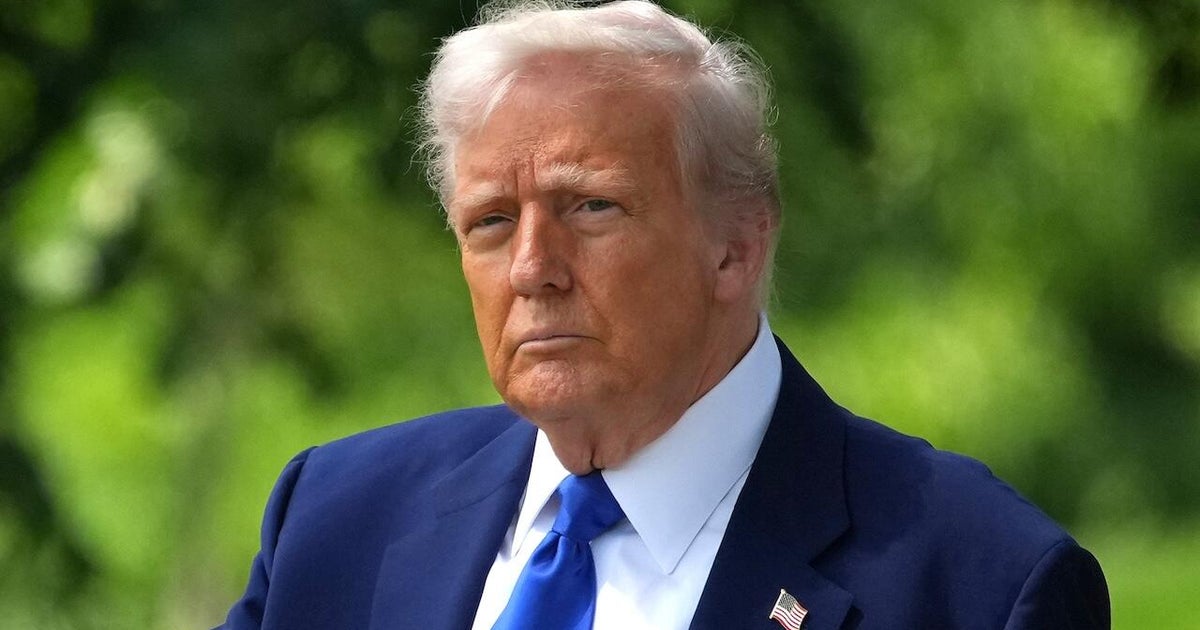World
Why is China so angry about Taiwan’s William Lai visiting the US?
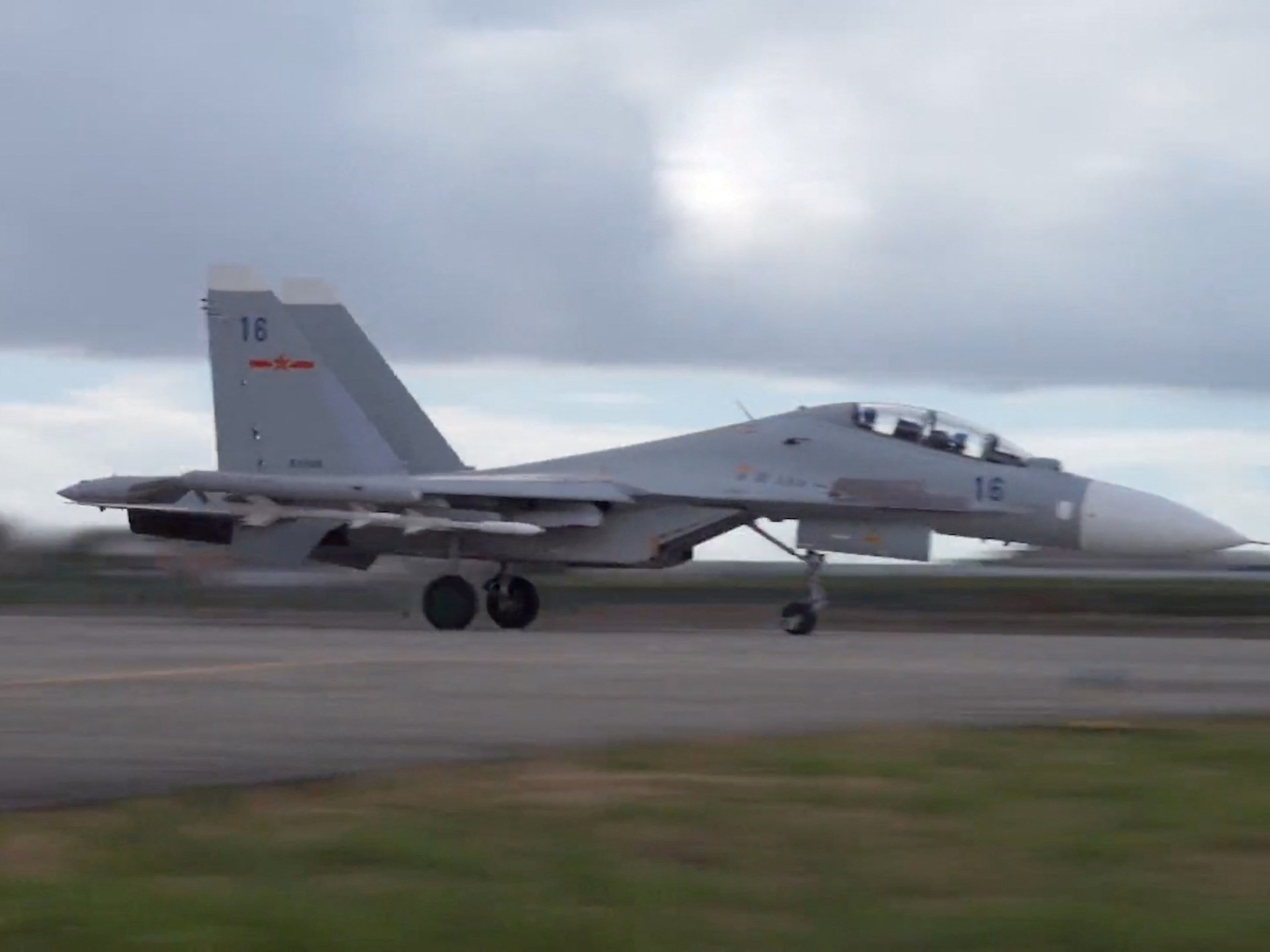
EXPLAINER
China’s angry response to Taiwan official’s stopovers in US show relations between Beijing and Taipei are at an all-time low, but how did we get here?
China has launched military drills around Taiwan in what its described as a “stern warning” to so-called separatist forces on the self-governed island.
This tension between China and Taiwan on Saturday comes a day after Taiwan’s Vice President William Lai returned to Taipei after making two stopovers in the United States as part of a trip to Paraguay.
Lai’s transits through the US have angered Beijing who considers Taiwan to be a breakaway territory and Lai a “troublemaker” in collusion with Washington to push separatism on the democratically-run island.
Here is some background on why China is so upset about Lai’s visit to the US:
Why is China so angry?
- Taiwan is a deeply emotive issue for China’s ruling Communist Party and Chinese President Xi Jinping.
- The People’s Republic of China has claimed Taiwan as its territory since the defeated Republic of China government fled to the island in 1949 after losing a civil war with Mao Zedong’s Communist forces.
- China has repeatedly called on US officials to not engage with Taiwanese leaders or allow them into the country under any guise, viewing it as “collusion” between Taipei and Washington.
- Beijing has not ruled out the use of force to take control of the democratic, self-governed island, and has been increasing military activity near the island in recent years.
- In 2005 China passed a law giving Beijing the legal basis for military action against Taiwan if it secedes or seems about to.
Why does China dislike William Lai so much?
- China believes Lai to be a separatist, a view borne out of his comments about being a “worker” for Taiwan’s independence.
- While Taiwan and the US say Lai’s US transits were routine and no reason for China to take offence, Beijing argue that Lai’s trips were in support of seeking “independence” for Taiwan, and a “disguise” to “seek gains in the local election through dishonest moves”.
- Lai is the ruling Democratic Party’s presidential candidate for the January elections and leads the polls.
What are Taiwan-US relations like?
- In 1979, the US severed official relations with the government in Taipei and instead recognised the government in Beijing. A Taiwan-US defence treaty was terminated at the same time.
- The post-1979 relationship between the US and Taiwan has been governed by the Taiwan Relations Act, which gives Washington a legal basis to provide Taiwan with the means to defend itself but does not mandate that the US come to Taiwan’s aid if attacked.
- While the US has long followed a policy of “strategic ambiguity” on whether it would intervene militarily to protect Taiwan in the event of a Chinese attack, current US President Joe Biden has shifted the dial saying he would be willing to use force to defend Taiwan.
- The US continues to be Taiwan’s most important source of weapons, and Taiwan’s contested status is a constant source of friction between Beijing and Washington.
What does Taiwan say?
- Taiwan’s government says that as the People’s Republic of China has never ruled the island, it has no right to claim sovereignty over it, speak for it or represent it on the world stage, and that only Taiwan’s people can decide their future.
- Taiwan’s official name continues to be the Republic of China, though these days, the government often stylises it as the Republic of China (Taiwan).
- Only 13 countries formally recognise Taiwan: Belize, Guatemala, Haiti, Paraguay, Saint Kitts and Nevis, Saint Lucia, Saint Vincent and the Grenadines, Marshall Islands, Nauru, Palau, Tuvalu, Eswatini and the Vatican City.
- Nine countries switched alliance to China after Tsai Ing-wen became Taiwan’s president in 2016, and Beijing has increased its efforts to isolate Taiwan diplomatically.
- Taiwan’s government says it is a sovereign country, and it has a right to state-to-state ties.
How are relations between Taipei and Beijing?
- Very bad.
- China views Tsai as a separatist and has rebuffed her repeated calls for talks.
- Tsai says she wants peace but her government will defend Taiwan if attacked.
- Beijing says Tsai must accept that China and Taiwan are part of a “one China”.
- Neither side recognises the other, and China shut off all formal dialogue mechanisms after Tsai first won office in 2016.

World
Scarlett Johansson Was Offered ‘Sex Object’ Roles ‘For Years’ After ‘Lost in Translation,’ Says Bill Murray Was in a ‘Hard Place’ on Set: ‘Life Has Humbled Him’ Now

Scarlett Johansson remembered in an interview with Vanity Fair her career getting pigeonholed by “sex object” roles after the breakout success of Sofia Coppola’s 2003’s “Lost in Translation,” which cast a 17-year-old Johansson opposite Bill Murray.
“After ‘Lost in Translation,’ every role that I was offered for years was ‘the girlfriend,’ ‘the other woman,’ a sex object — I couldn’t get out of the cycle,” Johansson said. “It sort of felt like, ‘Oh, I guess this is my identity now as an actor.’ There wasn’t much I could do with that.”
Johansson added that her representatives at the time did not help her try to avoid these roles, although “they were reacting to the norm. The industry worked like that forever.”
“You come into your sexuality and your desirability as part of your growth, and it’s exciting to blossom into yourself,” she continued. “You’re wearing the clothes you want, you’re expressing yourself, then you suddenly turn around and you’re like, ‘Wait, I feel like I’m being’ — I don’t want to say exploited because it’s such a severe word. That term is so heavy, but yeah, it was a kind of an exploitation.”
“Lost in Translation” stars Murray as a fading movie star in Tokyo who befriends Johansson’s college graduate amid a midlife crisis. Johansson would not go into specifics but did say “Bill was in a hard place” during the film’s production, adding: “Everybody was on tenterhooks around him, including our director and the full crew, because he was dealing with his… stuff.”
Johansson said she never had worked with an actor in Murray’s “headspace” before. The two performers ran into each other earlier this year behind the scenes of “SNL50,” where Murray was in a much more spirited mood.
“He’s such a different person now. I think life has humbled him,” Johansson said, confirming she was partly referring to his behavior on the set of the 2022 movie “Being Mortal” that resulted in the project being shut down. Murray said earlier this year that he gave a woman on set a kiss through a mask, although he maintained he was just being silly.
“Certainly, yes — that was really bad,” Johansson said. “But I also know COVID was a hard thing for him. Life — all these things have led up to him being held accountable for that kind of behavior. But you know what? How wonderful that people can change.”
Speaking of her experience on “Lost in Translation” at large, Johansson added: “I’m pretty proud of how I handled myself. I really just did the work, you know? It’s a good tactic for pushing through stuff. Eyes on the prize.”
Head over to Vanity Fair’s website to read Johansson’s cover story in its entirety.
World
Trump makes historic UAE visit as first US president in nearly 30 years
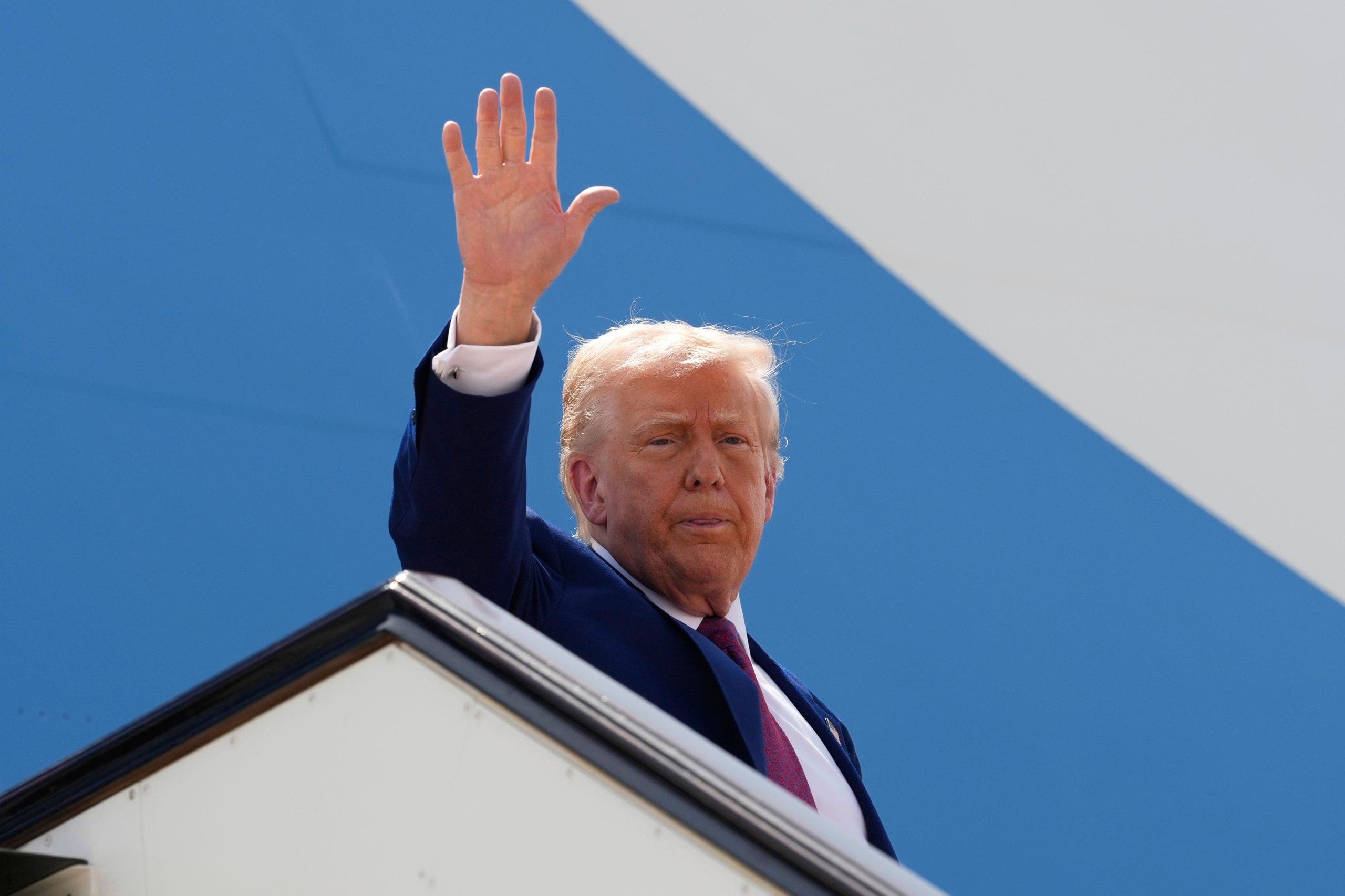
President Donald Trump on Thursday will soon land in the United Arab Emirates for his final stop in the Middle East this week in a visit that marked the first time a U.S. president has traveled to the nation in nearly 30 years, following President George W. Bush’s trip in 2008.
Trump, who has secured major business deals first in Saudi Arabia and then Qatar, is expected to announce more agreements with what has long been one of the U.S.’ chief trading partners in the region — though given recently announced trillion-dollar deals, it is unclear what more the Emiratis will agree to.
In March, the UAE pledged a $1.4 trillion investment in the U.S. economy over the next decade through AI infrastructure, semiconductor, energy and American manufacturing initiatives, including a plan to nearly double U.S. aluminum production by investing in a new smelter for the first time in 35 years.
President Donald Trump waves as he boards Air Force One to depart Al Udeid Air Base on his way to the UAE on Thursday, May 15, 2025, in Doha, Qatar. (AP Photo/Alex Brandon)
TRUMP SIGNS AGREEMENTS WITH QATAR ON DEFENSE AND BOEING PURCHASES
On the eve of the president’s visit to the Middle Eastern nation, the State Department also announced a $1.4 billion sale of CH-47 F Chinook helicopters and F-16 fighter jet parts to Abu Dhabi.
However, lawmakers on Wednesday suggested they may block this sale amid concerns over direct personal business ties, as Trump’s crypto venture has also received a $2 billion investment by a UAE-backed investment firm.
“If I was a betting person, I’d bet that the Emiratis almost certainly kept some things in reserve for President Trump’s actual visit that can be announced when he’s on the ground in Abu Dhabi,” John Hannah, former national security advisor to Dick Cheney and current Randi & Charles Wax senior fellow at the Jewish Institute for National Security of America (JINSA), told Fox News Digital. “I wouldn’t be at all surprised if we see some new items unveiled or some additional details put out on some of the earlier announcements.”
“The UAE has clearly staked its future on being the Middle East leader in a wide range of 21st-century technologies, from AI to chips to space,” he added. “And of course, the shopping list for high-end weapons is almost limitless and always a possible deliverable for a trip like this.”
Increased scrutiny arose around Trump’s Middle East tour as engagement with all three nations holds personal value to him, given the Trump Organization’s luxury resorts, hotels, golf courses, real estate projects and crypto investment schemes in the region.
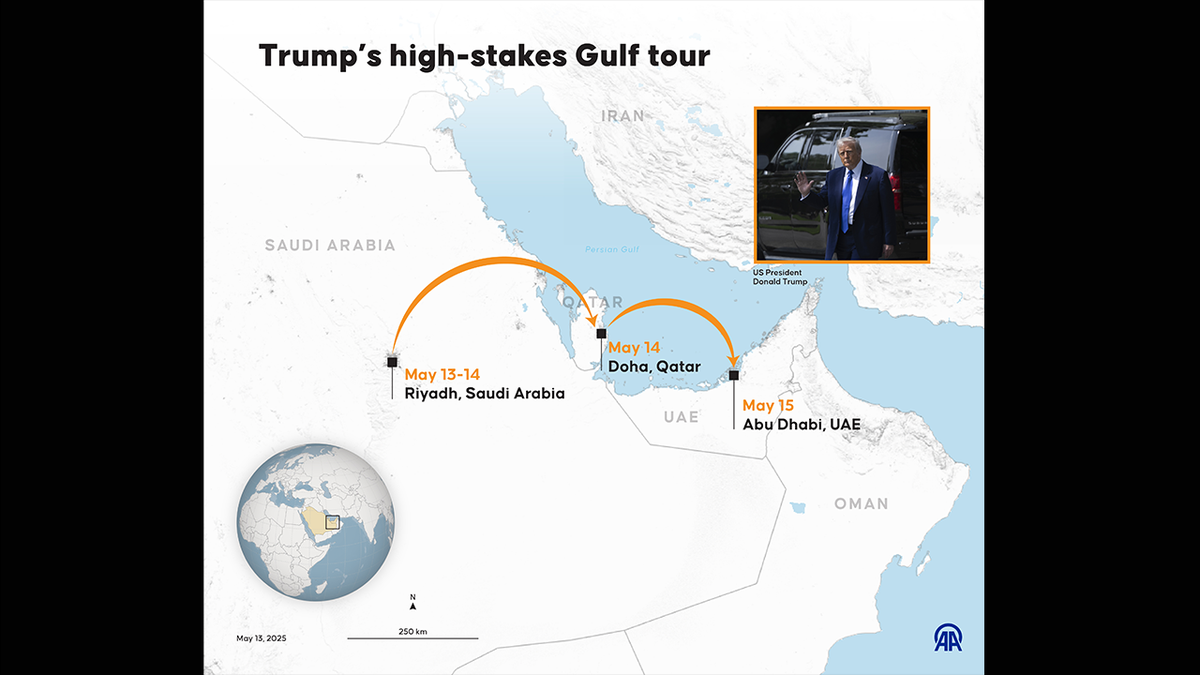
An infographic titled “Trump’s high-stakes Gulf tour,” created in Ankara, Turkey, on Tuesday. (Yasin Demirci/Anadolu via Getty Images)
TRUMP CONTINUES TO DEFEND QATAR GIFTING US $400M JET: ‘WE SHOULD HAVE THE MOST IMPRESSIVE PLANE’
But all three nations also hold significant value to Washington, as they have become key players in some of the toughest geopolitical issues facing the U.S. and its allies.
Saudi Arabia and Qatar have been integral in facilitating U.S. negotiations when it comes to ending Russia’s war in Ukraine and hostage negotiations in the Gaza Strip.
While neither of these issues appeared to be top points of discussion in Trump’s visit to Saudi Arabia or Qatar, he may hit on geopolitical ties more heavily when it comes to the UAE, particularly given that Abu Dhabi is one of the few Middle Eastern nations that holds normalized diplomatic ties with Israel.
The UAE has ardently opposed Israel’s military operations in the Gaza Strip, has called for a two-state solution, and has rejected Trump’s “riviera plans,” instead favoring an Egypt-reconstruction alternative.
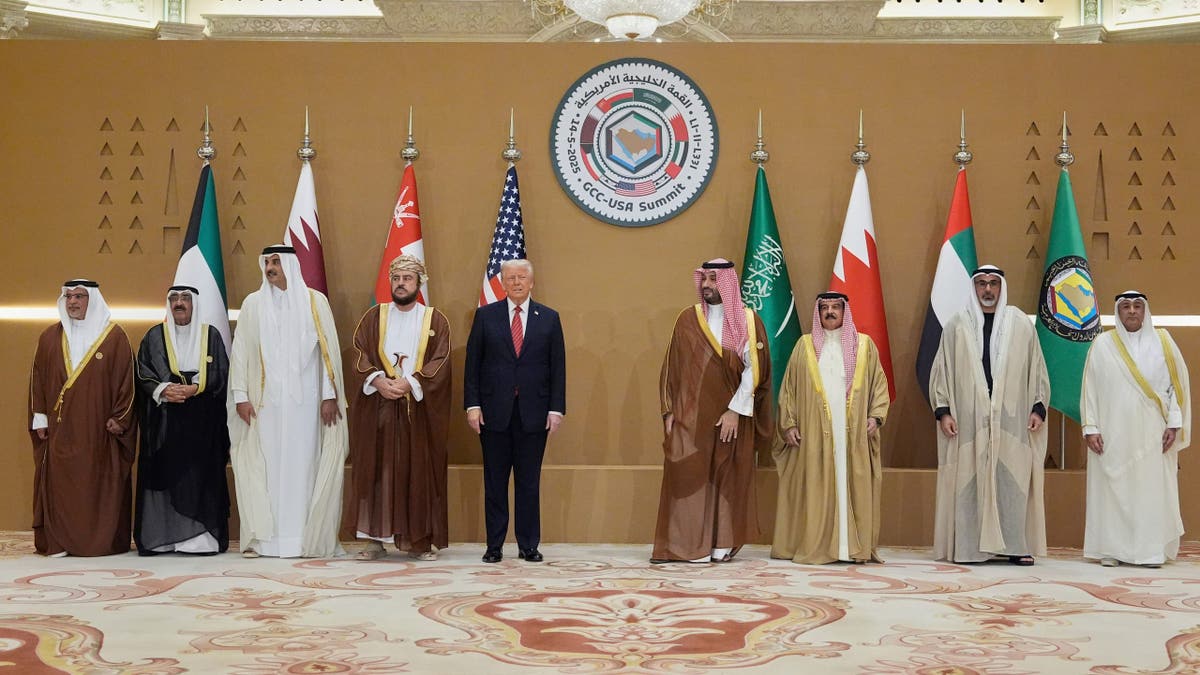
President Donald Trump, center, attends a photo session with Saudi Crown Prince Mohammed bin Salman, United Arab Emirates Crown Prince Sheikh Khaled bin Mohamed bin Zayed Al Nahyan, Qatar’s Emir Sheikh Tamim bin Hamad Al Thani, Kuwait’s Crown Prince Mishal Al-Ahmad Al-Jaber Al-Sabah and Gulf Cooperation Council Secretary-General Jasem Mohamed Albudaiwi during the GCC Summit in Riyadh, Saudi Arabia, on Wednesday. (AP Photo/Alex Brandon)
But Abu Dhabi has also maintained relations with the U.S.’ biggest adversaries, including China, Russia and Iran, which could be a topic of conversation during Trump’s one-day visit.
“As everywhere on this trip, the headlines will likely be dominated by the dollar signs and deal-making,” Hannah said. “But I’m personally most interested in the geopolitical angle of trying to reset the U.S.-Emirati strategic partnership, especially in the context of America’s great power competition with China and to a lesser extent Russia, and regionally with Iran.”
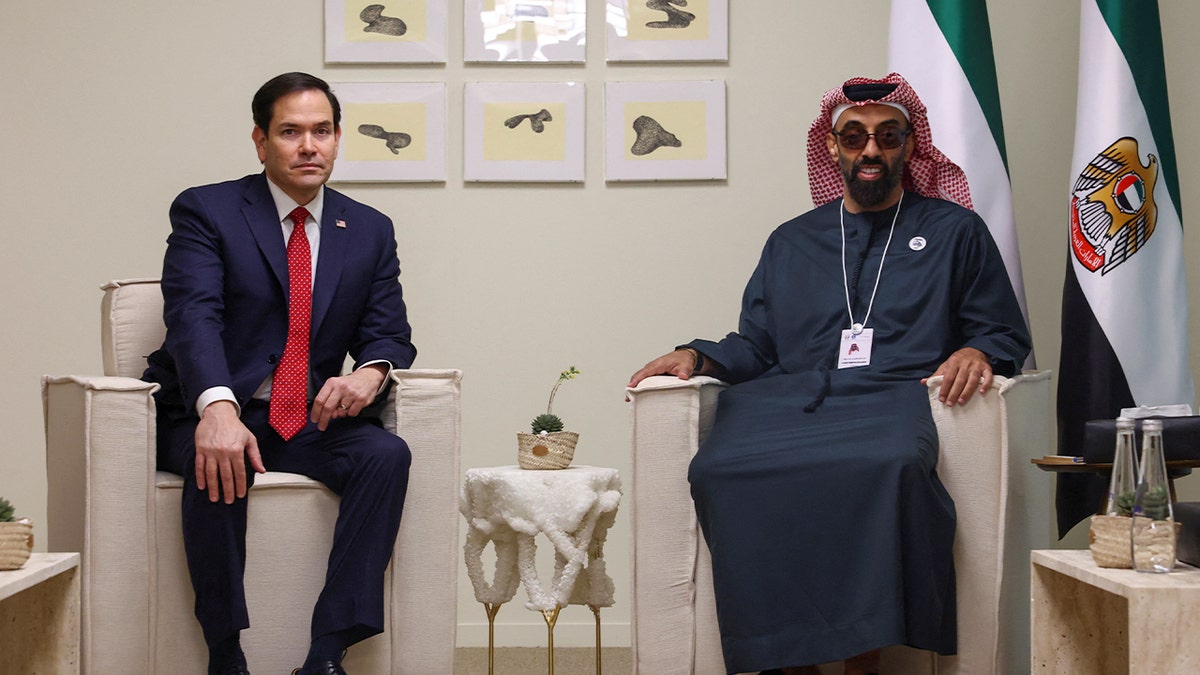
Secretary of State Marco Rubio, left, appears with UAE National Security Advisor Sheikh Tahnoon bin Zayed Al Nahyan at ADNEC Centre Abu Dhabi in Abu Dhabi, United Arab Emirates, on Feb. 19. (Reuters/Evelyn Hockstein/Pool)
Hannah explained that Trump’s visit to the UAE exemplifies a recommitment by the U.S. economically and militarily to support Abu Dhabi’s “stability, security, and success in a dangerous neighborhood” and could “pay real dividends going forward.”
“The UAE’s top leadership has come to believe that putting most of its eggs into the American basket was an increasingly risky bet as one president after another decided that the Middle East was a lost cause — nothing but ‘blood and sand’ as President Trump famously said in his first term — and the country needed to pivot its focus toward Asia,” he continued. “With a country as influential and resource-rich as the UAE, correcting that unhelpful perception and putting the strategic relationship back on a much more positive dynamic is an important goal.”
World
Leak: Commission to launch PFAS clean-ups in water resilience strategy
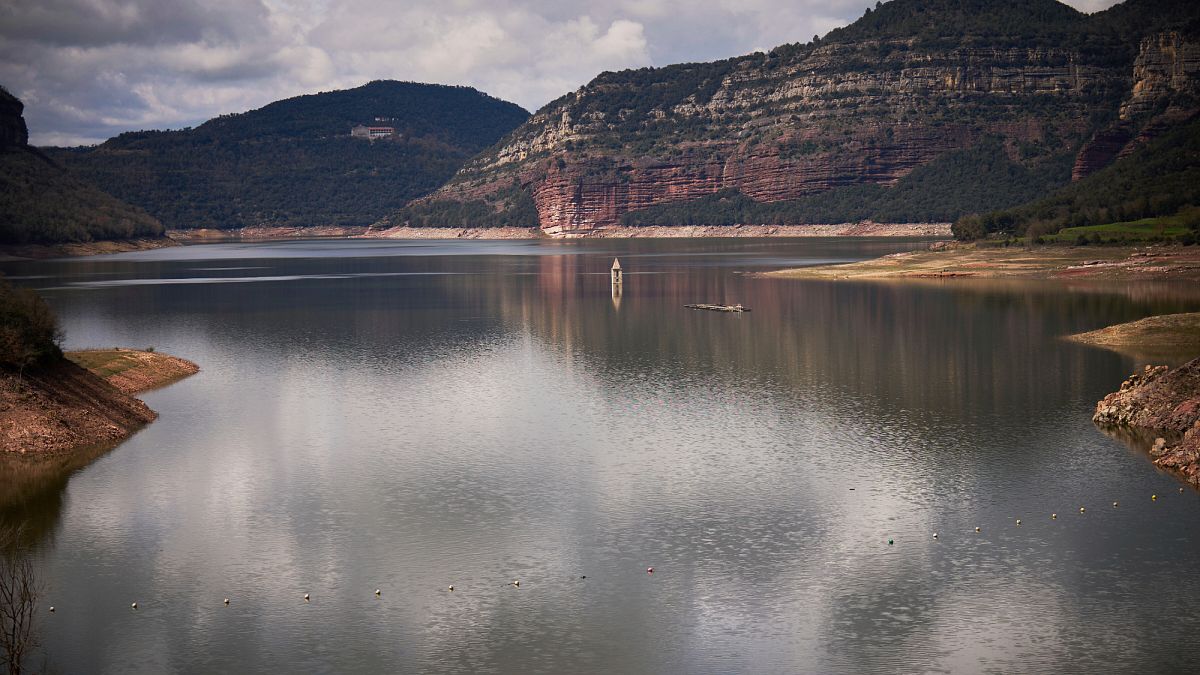
The European Commission is preparing to support a major clean-up initiative targeting Per- and polyfluoroalkyl substances (PFAS), also known as “forever chemicals” due to their persistence in the environment and human body, according to a leaked proposal seen by Euronews.
The operation, which is expected to start in 2026, is a central feature of the forthcoming EU Water Resilience Strategy.
Controversially shelved by the previous Commission and now slated for presentation by 4 June, the new strategy aims to address increasingly severe flooding, droughts, and escalating water pollution across Europe.
According to a leaked draft of the proposal seen by Euronews, the Commission warns that “urgent action is needed to tackle pollutants of emerging concern which pose a risk to our vital sources of drinking water.”
“The EU must embark on decisive efforts to clean up these and other ubiquitous, persistent, bio-accumulative, and toxic substances, particularly where such chemicals remain indispensable for societal or industrial use,” the draft continues.
The leaked document stresses that remediation should follow the “polluter pays” principle, with public funding reserved for so-called orphan sites, namely locations where no responsible party can be identified.
The estimated cost of cleaning up PFAS contamination across Europe ranges from €5 billion to €100 billion annually, according to the Commission. The water sector alone could face up to €18 billion in additional yearly expenses for drinking water treatment. Costs for wastewater and sewage sludge management are projected to be even higher.
Among the planned initiatives is a public-private partnership launching in 2026, focused on the detection and clean-up of PFAS and other persistent chemicals. The initiative will align with recently revised EU legislation on industrial emissions, drinking water, and wastewater, and is intended to foster innovation and market development within the European water sector.
“Innovation and digitalisation are indispensable to remove emerging pollutants like PFAS and other toxic micro-substances,” the Commission notes in the draft adding that bio-based technologies could offer long-term solutions. The document also highlights the importance of achieving energy neutrality in the wastewater sector and improving integrated urban water management.
The PFAS actions in the strategy are intended to complement ongoing efforts under the revision of the EU’s REACH framework, as outlined in President von der Leyen’s 2024–2029 political guidelines, which are also slated for revision soon.
By the end of 2025, the Commission aims to adopt a comprehensive restriction on all PFAS in firefighting foams, identified as one of the primary sources of PFAS emissions.
PFAS and other highly persistent pollutants continue to accumulate in EU waters, with estimated health-related costs ranging from €52 billion to €84 billion annually.
Aligned with the Zero Pollution Action Plan, the Commission also proposes a monitoring and outlook system to tackle water and marine pollution at its source.
-

 Austin, TX5 days ago
Austin, TX5 days agoBest Austin Salads – 15 Food Places For Good Greens!
-

 Technology1 week ago
Technology1 week agoBe careful what you read about an Elden Ring movie
-

 Technology1 week ago
Technology1 week agoNetflix is removing Black Mirror: Bandersnatch
-

 Culture1 week ago
Culture1 week agoPulitzer Prizes 2025: A Guide to the Winning Books and Finalists
-

 Education1 week ago
Education1 week agoUniversity of Michigan President, Santa Ono, Set to Lead University of Florida
-

 World1 week ago
World1 week agoThe Take: Can India and Pakistan avoid a fourth war over Kashmir?
-

 News1 week ago
News1 week agoReincarnated by A.I., Arizona Man Forgives His Killer at Sentencing
-

 News1 week ago
News1 week agoJefferson Griffin Concedes Defeat in N.C. Supreme Court Race
